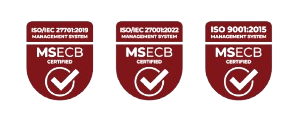As Africa evolves, we must find ways to bridge the gaps between different cultures, races, and socio-economic backgrounds. One of the most effective ways to achieve this goal is through digital enrolment, which involves registering individuals electronically.
In this article, we will explore how digital enrolment in Africa promotes social inclusion and discuss the numerous benefits of this innovative approach.
Digital Enrolment: A Gateway to Social Inclusion
By providing people with unique identification numbers, digital enrolment ensures everyone can access vital services and resources, regardless of their background or socio-economic status.
From individuals being able to easily register for healthcare programs and services, ensuring they receive the appropriate care and support, to facilitating access to financial services, such as banking and credit.
Also, with a digital identification system in place, employers can more easily verify the identities of job applicants, helping to ensure that individuals are not excluded from employment opportunities due to a lack of formal identification.
In Kenya, the Huduma Namba system has made it easier for people to register their businesses. In the past, people had to travel long distances to government offices to register their businesses. This was often a difficult and time-consuming process. With the Huduma Namba system, people can now register their businesses online or at a local Huduma Centre. This has made it much easier for people to start businesses and contribute to the economy.
Another case study is Namibia’s National Population Register, a digital database that contains information on all Namibian citizens and residents. The register was launched in 2014, and it has been used to improve access to a wide range of government services, including education, social welfare and banking.
To get an overview of the effect of identity enrolment on social inclusion, let’s consider Africa’s largest identity enrolment drive.
The Success of Digital Enrolment in Nigeria
Through the National Identity Management Commission (NIMC), the Nigerian government introduced the National Identification Number (NIN) as a unique identifier for all citizens and legal residents.
The NIN initiative has been instrumental in addressing Nigeria’s identity crisis, helping bridge the gap between the ‘haves’ and the ‘have-nots.’ By providing individuals with a unique identifier, the NIMC has ensured that over 100 million Nigerians, about half of the population, even in rural areas, can access vital services and resources, regardless of their socio-economic status.
The NIN has also played a crucial role in promoting security and compliance within Nigeria. By requiring citizens to link their NIN to their SIM cards, the Nigerian Communications Commission (NCC) has created a centralised database that can be used to verify individuals’ identities and combat criminal activity.
The success of the NIN initiative can be primarily attributed to the cutting-edge technology provided by Seamfix, a leading data collection and identity management company. Seamfix’s Android platform has streamlined enrolment, ensuring that individuals can quickly and easily register for their NIN.

The Role of Technology in Digital Enrolment
Technology plays a critical role in the success of digital enrolment initiatives, as it enables governments and organisations to streamline the enrolment process and ensure that all individuals can access vital services and resources.
a. Biometric Data Collection
One of the critical components of digital enrolment is the capturing of biometric data, such as fingerprints and facial images. This data is crucial for verifying individuals’ identities and ensuring they are unique within the system.
b. Data Validation and Quality Checks
Technology also plays a crucial role in ensuring that the data collected during the enrolment process is accurate and of the highest quality. By incorporating quality checks and data validation processes into the enrolment platform, governments and organisations can ensure that the information entered into the system is accurate and reliable.
c. Mobile-Enabled Platforms
Mobile-enabled platforms for digital enrolment have made the process more accessible and flexible, allowing individuals to register for their unique identifiers anywhere, anytime. This has been particularly beneficial in remote and rural areas, where access to traditional enrolment centres may be limited.
The Future of Digital Enrolment in Africa
As technology advances and the global community becomes increasingly interconnected, digital enrolment will play an even more critical role in promoting social inclusion in Africa.
a. Expanding Digital Enrolment Initiatives
In the coming years, we expect to see more African countries adopting digital enrolment initiatives like those implemented in Nigeria, Kenya, South Africa, and Ghana. As more governments recognise the potential of digital enrolment in promoting social inclusion, we will likely see an expansion of these initiatives across the continent.
For example, Rwanda’s Ubudehe Program is a national social protection program that provides financial assistance to vulnerable households. The program uses a digital enrolment system to identify and register eligible families using various data sources, including census, tax, and school data.
The Ubudehe Program has successfully reduced poverty in Rwanda, lifting millions of people out of poverty and reducing financial inequality.
The Tanzanian government has also launched a digital enrolment initiative called the National Identification System (NIDA). The NIDA system is a biometric identification system that uses fingerprints and facial recognition to create a unique identifier for each citizen. The NIDA system registers citizens for various services, including education, healthcare, and social welfare.
The NIDA system has been praised for its potential to reduce corruption and improve the efficiency of government services. It has also been credited with helping to increase access to vital services for marginalised groups, such as people experiencing poverty and older adults.
b. Leveraging Emerging Technologies
As technology evolves, so too will digital enrolment platforms. Governments and organisations must stay abreast of the latest technological advancements to ensure their digital enrolment platforms remain effective and efficient.
The Ethiopian government launched a new digital enrolment platform called the Fayda identification. This foundational ID system enables a resident to be identified as a unique person using demographic information and biometric data. Fayda Identification is essential for guaranteeing fundamental human rights and improving access to service.
c. Fostering Collaboration and Partnerships
The future of digital enrolment in Africa will also depend on the ability of governments and organisations to collaborate and form partnerships with one another. By working together, they can pool their resources and expertise to create more effective digital enrolment platforms and promote social inclusion on a larger scale.
Take, for instance, The African Development Bank (AfDB), which works with African governments to develop national digital identification systems. The AfDB provides technical and financial assistance to help governments implement these systems.
Conclusion
By providing individuals with unique identification numbers, digital enrolment can break down barriers and promote social inclusion at all levels of society. While there are still challenges to be addressed, the success of digital enrolment initiatives in countries like Nigeria, Kenya, South Africa, and Ghana demonstrates that this innovative approach can potentially transform the lives of millions of individuals across the continent.
Seamfix is your ideal partner to implement a scalable and secure digital enrolment system. Contact us today to learn more about our services.









